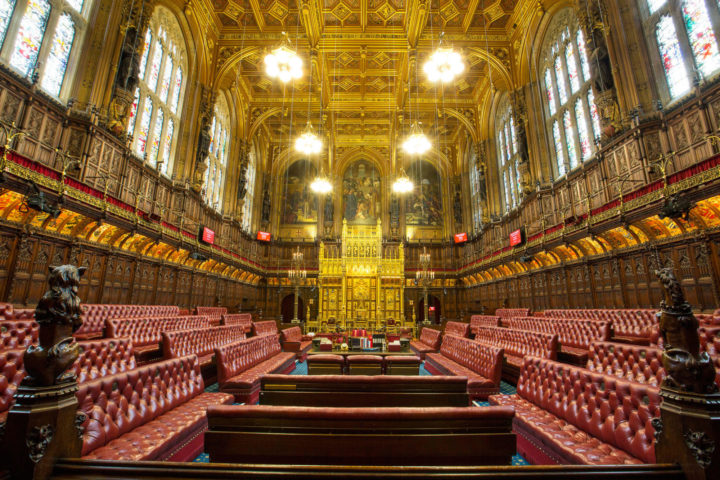Comment on Lords Economic Affairs Committee report on UK electricity market
Experts highlight ‘out-of-date claims’ in Peers' report
By George Smeeton
info@eciu.netShare
A new report by the House of Lords Economic Affairs Committee on the UK electricity market is ‘marred by a slanted presentation of conclusions and statistics’, said Michael Grubb, Professor of International Energy and Climate Change Policy at UCL, who gave evidence to the inquiry:

“This interesting and otherwise thoughtful report is marred by a slanted presentation of conclusions and statistics principally in the Summary,” he said.
“Contrary to its claim, industrial electricity prices in Britain today are not the highest in Europe, and industry also receives significant direct compensation for policy costs. It cites the big rise in electricity bills without acknowledging the impact of gas prices as a key historic driver of this over the past decade. It is comparing apples with oranges in a generalised claim that generation from fossil fuels is cheaper than renewables. And it refers to the cost of backing up renewables, without acknowledging that these costs to date have proved far less than predicted, and that the cost of backup so far procured under the Capacity Mechanism will add barely 1% to electricity bills.
“In short – some interesting analysis but important corrections required.”
Paul Massara, CEO of North Star Solar and former CEO of RWE npower also highlighted the ‘out-of-date claims’ in this report.
“The Committee is wrong in claiming that electricity from fossil fuels is always cheaper than that from renewable sources, or that low-carbon sources of power are ‘chronically unreliable’. In reality, renewables like solar or onshore wind are already cost-competitive with fossil fuels in many parts of the world, as costs have plummeted with increasing deployment. Likewise, countries like Denmark with high levels of renewable power on their systems have a more reliable network than we do in the UK. What is more, work by Aurora has shown that the cost of backing up intermittent renewables is much cheaper than previously thought and is likely to fall further as battery storage takes off,” he said.
“It’s a shame this is a backward-looking report with many out-of-date claims, because elsewhere, the peers make sensible recommendations. Boosting the use of market mechanisms for example, so that all-technologies can compete on a level playing, is a welcome proposal. They’re also entirely right to question the costs of the new Hinkley Point nuclear plant.
“What the Committee doesn’t seem to understand is the wholesale transition that our energy system, like those of other countries, is undergoing. We’re rapidly moving towards a smart, flexible grid dominated by clean sources of energy, and employing new technologies like storage and demand-side measures to boost security and cut energy waste. The sooner policymakers get this shift, stop being obsessed with baseload production and put in place polices to facilitate it, the better.”
Dr Jonathan Marshall, energy analyst at the Energy and Climate Intelligence Unit (ECIU) said that the report’s recommendations favoured fossil-fuel power.
“The report makes a number of recommendations that would ultimately favour new fossil-fuelled generation capacity, weakening or missing targets set under the Climate Change Act,” he said.
“Despite overwhelming evidence to the contrary, the committee maintains that the threat of power cuts looms on the UK’s horizon, advocating yet another swing in policy to ensure that ‘the lights stay on’. In reality, the UK’s last generation-based output was back in 2008, the use of contingency measure to keep the lights on is at a long-term low, and implementation of the capacity market this coming winter ensures that a secure and reliable supply is simply no longer a concern.
“In areas such as the ‘hidden costs of renewables’, Lord Hollick et al appear out-of-touch with a sector that engaged heavily with the investigation, in some cases appearing to ignore the mountains of evidence submitted by energy professionals in favour of that from industry lobby groups and think-tanks known for advancing the interests of coal and gas. Overall, despite the depth into which the investigation went, it is easy to feel disappointed by the output. Swinging changes in policy are simply not what the energy sector needs – and, in the final analysis, the Lords find no good reason for making any.”
A recent survey by ComRes for the ECIU found that a significant majority of British adults (85%) support Government subsidies for programmes that reduce energy waste, and that the same proportion want renewable energy sources such as wind and solar to receive subsidies. It also revealed growing support for the Government’s commitment to phase out coal-fired power stations, with 65% of Britons now backing an end to coal use, up from 58% in 2015.